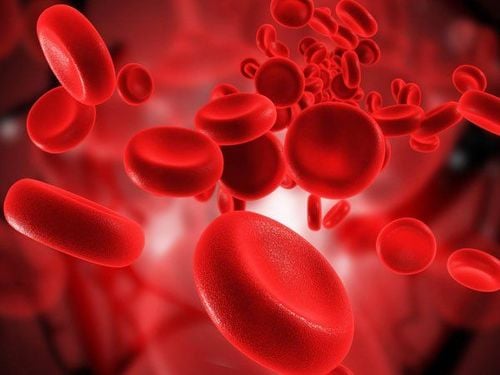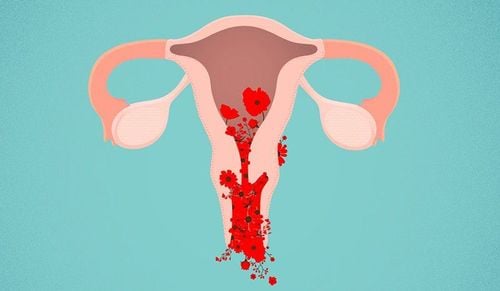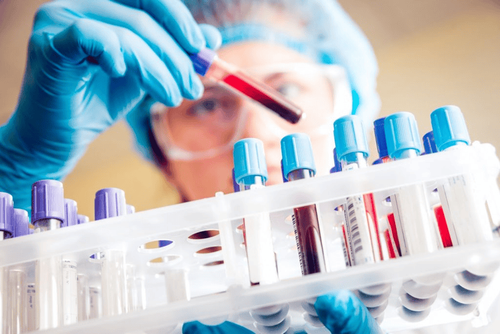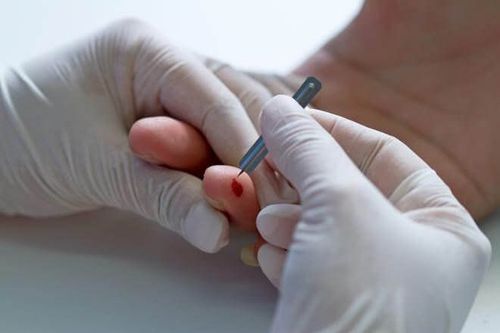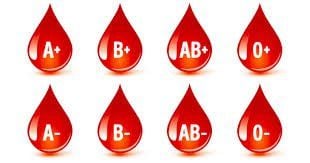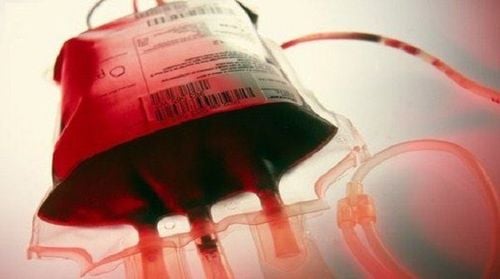This is an automatically translated article.
Determination of blood type is very important to ensure a safe blood transfusion. Because each blood type has its own unique characteristics. In addition to testing standards to detect and prevent blood-borne viruses, it is also necessary to follow the principles of blood transfusion.1. Determination of blood group
Human blood is divided into several groups based on the specific antigens present on the surface of red blood cells. This antigen is in turn regulated by genes inherited from parents. There are more than 30 different blood group systems, however, the ABO and Rh(D) blood group systems are very important due to their powerful immunogenicity.When the blood of the same group is not transfused, the recipient's antibodies can destroy the antigens on the red blood cells of the donor's blood and cause some harm to the body. Therefore, it is necessary to classify and determine the blood group for appropriate transfusion according to the principle of immunological safety, that is, do not transfuse blood with antigens corresponding to antibodies present in the recipient.
1.1. Determination of ABO blood group ABO blood group includes:
A blood group: contains A antigens on red blood cells and B antibodies in plasma. Blood group B: contains B antigens on red blood cells and A antibodies in plasma. Blood type AB: contains both A and B antigens on red blood cells and no antibodies in the plasma. This is an uncommon blood group. Blood group O: does not contain A and B antigens on red blood cells, but has both A and B antibodies in the plasma. This is the most common blood group. 1.2. Determining the Rh blood group Most people are Rh positive, which means they have Rh antigens on their red blood cells. However, there are some people who do not have Rh antibodies and are called Rh negative. This rate is very rare.
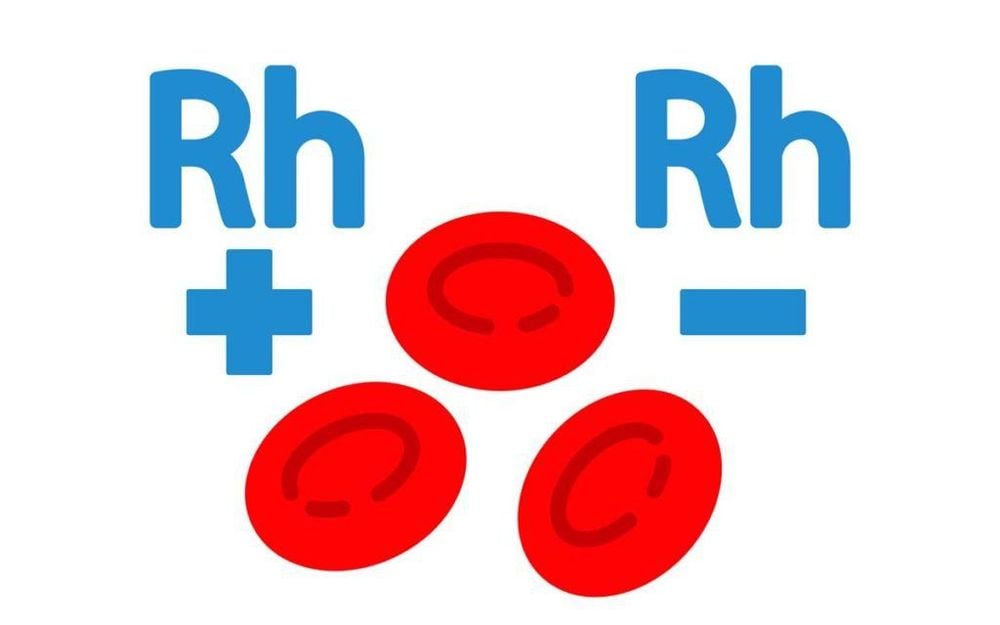
Hầu hết mọi người có Rh dương tức là có kháng nguyên Rh trên các tế bào hồng cầu
2. Safe blood transfusion
2.1. Principles of blood transfusion To ensure safe blood transfusion, the following blood transfusion rules must be observed:Transfusion of blood from the same group to prevent antigens and corresponding antibodies from meeting, causing agglutination (agglutination) of red blood cells together. In addition to determining the donor and recipient blood groups, cross-reactivity should be performed by mixing the donor's red blood cells with the recipient's serum, and vice versa, by mixing the recipient's red blood cells with the donor's blood. donor bar. If no red blood cell agglutination occurs, then the blood can be transfused to the recipient. Failure to receive blood from the same group can cause serious reactions in the recipient, possibly even leading to death within a few days. In case of emergency needing blood transfusion but there is no blood of the same group for transfusion, if blood of different groups is required, the minimum rule must be followed: "The red blood cells in the donor's blood are not agglutinated with the serum. in the recipient's blood" and received only a small amount of blood (about 250ml) with a very slow transfusion rate for timely monitoring. 2.2. Blood transfusion of the same blood group People with blood group A can safely donate blood to someone with the same blood group A, or blood group AB. In addition, people with blood type A can also receive blood transfusions from donors with blood type O. People with blood group B can safely donate blood to someone with the same blood type B, or blood group AB. In addition, people with blood group B can also receive blood transfusions from donors with blood type O. People with blood type O can only receive blood transfusions with blood group O because the antibodies in the plasma will attack other types of blood. . However, people with blood type O can donate blood to all other blood types, because blood group O has absolutely no antigens. People with blood type AB can receive all blood types. However, because there are both A antigens and on red blood cells, a person with blood type AB can only donate blood to someone with the same blood type AB.
3. What happens when blood type incompatibility?
If a blood transfusion is required, the donor's blood must be compatible with the recipient's blood, because if the same type of blood is not transfused, some of the following reactions may occur:Within 24 hours after blood transfusion or during Blood transfusion can cause acute hemolytic transfusion reactions. Feeling hot at the transfusion site. Feeling chills, fever, pain in the back, flanks, etc. These reactions are associated with most intravascular hemolysis. The red blood cells of the transfused blood are destroyed by the recipient's antibodies in the blood vessel lumen. Simultaneous reactions can cause shock and rapid death. Therefore, for a safe blood transfusion, before performing a blood transfusion, the selected blood bag must match the ABO and Rh blood groups. Then, to make sure there is no agglutination, mix a small sample of the recipient's blood with a small sample of the donor. After a short time, look under the microscope if there are no clots, then the blood bag is safe for transfusion.
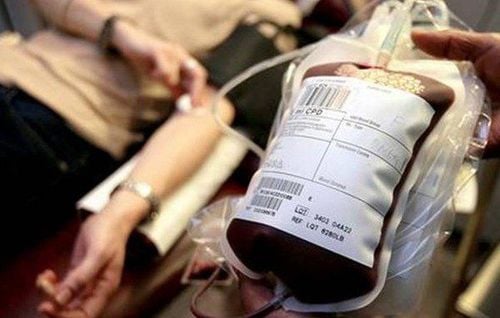
Truyền máu an toàn
4. Where is the blood group determined?
Vinmec Hai Phong International General Hospital is the only hospital in Hai Phong city that owns a very modern Wadiana fully automatic blood grouping machine from Spain, allowing the ABO blood grouping technique to be performed. Rh (D) on an automaton.This automatic blood grouping allows to minimize possible errors compared to manual methods. In addition, with a team of qualified doctors: Doctor Pham Thi Thuy Nhung and technicians with strict, rigorous, disciplined testing procedures, and compliance with regulations, helping to ensure an accuracy. absolute way.
Please dial HOTLINE for more information or register for an appointment HERE. Download MyVinmec app to make appointments faster and to manage your bookings easily.




